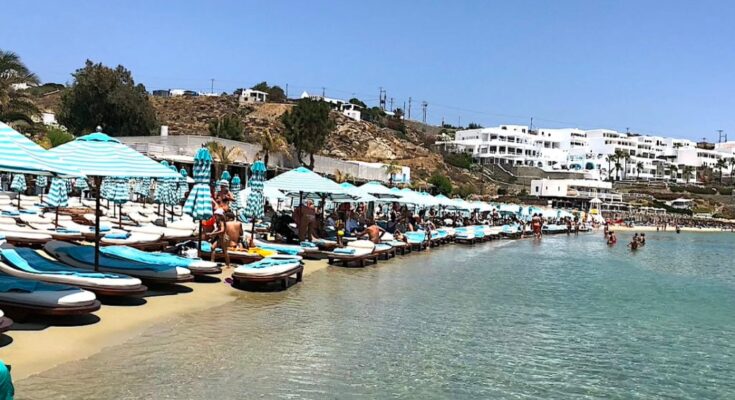Greece and most parts of southern, central and eastern Europe continue to experience an intense heatwave, with temperatures expected to reach 43°C (110 degrees Fahrenheit) in some regions over the next six days.
According to the Hellenic Meteorological Service (EMY), which is the nation’s public national meteorological service, the heatwave will continue to ”roast” Greece for at least another six days.
Its latest forecast says that over the weekend temperatures in continental Greece will reach highs from 38 to 41 degrees Celcius (100-106 degrees Fahrenheit).
Those lucky enough to be on a Greek island, either of the Aegean or the Ionian Seas, will experience much lower temperatures compared to the continental areas of the country that are away from the sea breeze.
Temperatures in the Aegean are not expected to go above 33-35 degrees, with the Ionian islands reaching a maximum temperature of 37-38 degrees over the next two days.
Nighttime temperatures are also expected to remain high, particularly on Monday, something that makes the conditions much more difficult to bear, especially in big cities, like Athens, Thessaloniki and Larissa.
This is not the first time this year that Greece has experienced soaring temperatures. Last month, the Acropolis in Athens, Greece’s most visited tourist site, had to remain closed to the public during the hottest hours of the day, as temperatures on June 12 and 13 reached a staggering 43 Celcius.
Last month, the country experienced a mini-lockdown for two days because of this extreme weather, as schools and many public services had to shut down to protect children, teachers, employees and the general public alike.
What to do if you’re in Greece during a heatwave
Greece has been grappling with a severe summer heatwave with temperatures soaring above 40 degrees Celsius (104 degrees Fahrenheit) for days now.
Experts state that physical activities during the hottest parts of the day must be avoided and people should always seek shade whenever possible.
Drinking plenty of fluids, particularly water, is also essential. Additionally, clothing can be a useful ally during the hottest hours of the day. People are advised to wear loose, light-coloured clothing that reflects the light and lets air circulate underneath them.
People should also use location-sharing apps and inform someone of their whereabouts in case they do engage in activities such as hiking or simply walking in remote areas.
The sunshine and high temperatures are what make Greece such a beloved destination for many during the summer months; however, we should always be aware of the dangers extreme temperatures bring.



